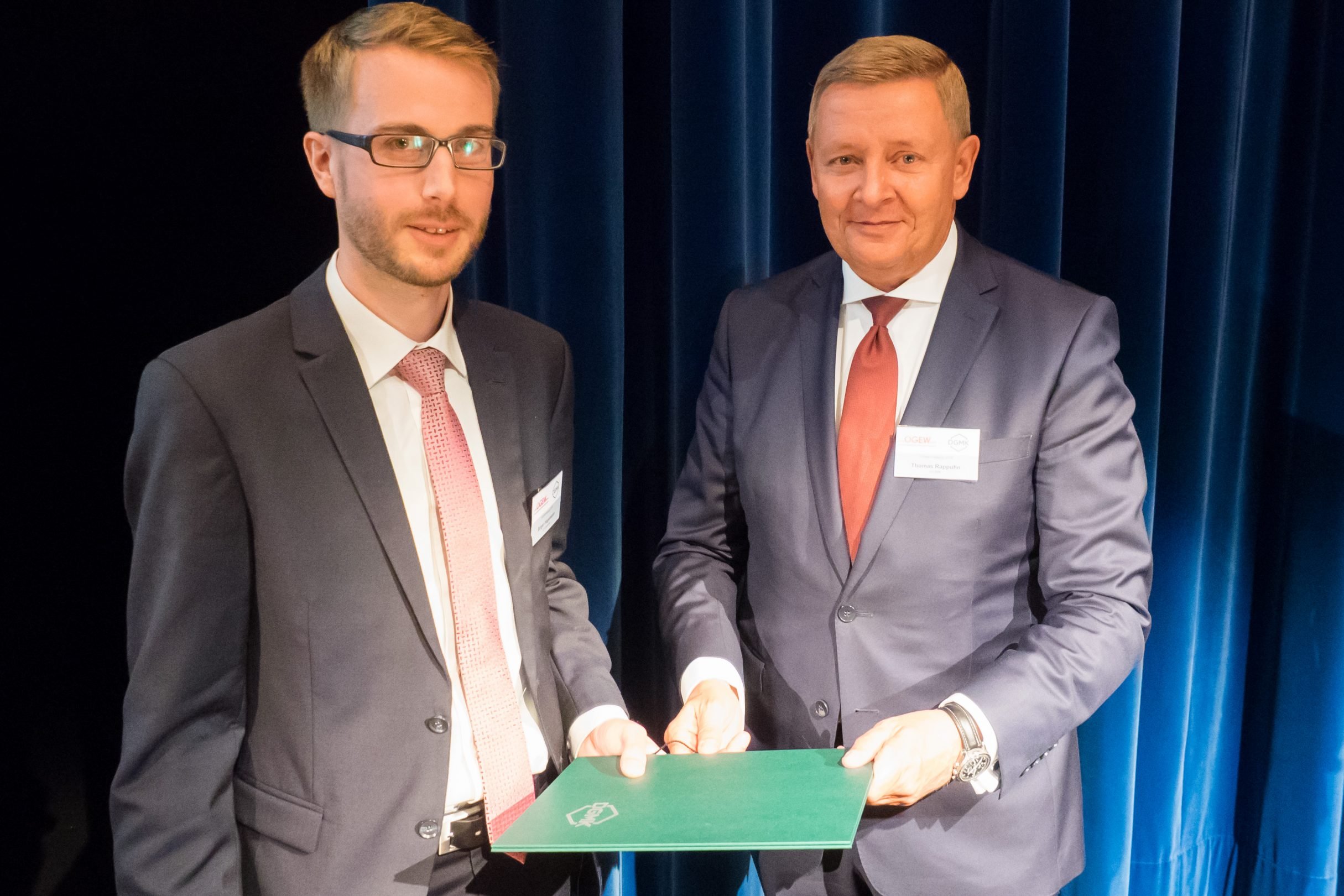In 2018, the Georg Hunaeus Prize for young scientists will be awarded to reservoir engineer Dr. Birger Hagemann from the Institut für Erdöl- und Erdgastechnik at Clausthal University of Technology. With his research on the chemical-physical-biological processes triggered by the storage of hydrogen in pore storage facilities, he has created a reference and basis for the complex of topics relating to the underground storage of hydrogen. His results are therefore very interesting for the storage industry, as this technology is of great importance for the success of the energy turnaround.
Dr. Birger Hagemann completed a double doctorate at the Universities of Clausthal and Nancy in 2017 and has since been working as a research assistant at the Institut für Erdöl- und Erdgastechnik at Clausthal University of Technology. Thomas Rappuhn, Chairman of the DGMK, presented Hagemann with the certificate for the prize, which is endowed with 5,000 euros, at the DGMK Spring Conference in Celle.
